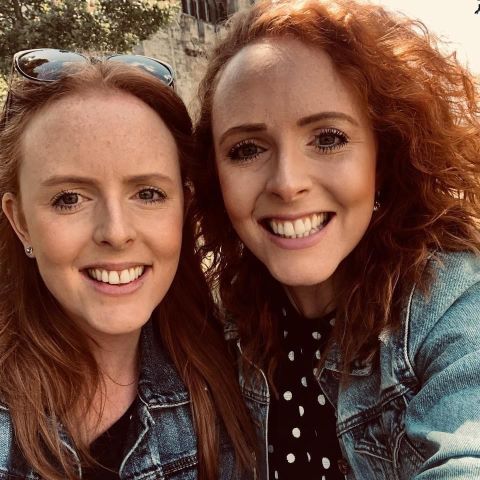‘It shaped us into who we are today’ – twin sisters share their experience of growing up in a fostering family
Twin sisters Olivia and Candice grew up in a fostering household and they loved the fun and diversity it brought to their home. Now adults, they have reflected on the impact fostering had on them and how it’s shaped them into the people they are today.

There are so many questions on the minds of parents considering fostering, particularly around the impact it will have on their own children. How will they cope with sharing their parents? What happens if they don’t get on with the foster children?
During Children of Foster Carers Month in October we spoke to twin sisters, Olivia and Candice, who grew up in a fostering household alongside their brother. Now adults, Candice and Olivia have shared the impact being children of foster carers had on them growing up, both agreeing it has shaped them into the people they are today.
Candice and Olivia’s parents decided to start with fostering teenagers, to make sure there was an age-gap between their three birth children and their foster children. This was one of the reasons fostering was a success in the household, according to Candice and Olivia. Maintaining an age gap seemed to avoid any rivalry, and when they grew up and entered their teen years, their parents moved on to fostering babies.
While parts of growing up in a fostering household were tough, the majority of the sisters’ memories are fond and filled with fun. Fostering meant they always had someone to play with. Olivia says she’ll never forget the excitement when the phone rang to tell them a new child would be coming to their home. Fostering had such a huge impact on Olivia, she decided to become a social worker herself.
‘I loved the idea that we were helping. It felt right and wanted to be a part of that. By the time I was 13 I had decided I was going to be a social worker, because I knew what the children were going through.
‘Our parents would explain a really small bit about why each child was coming. I didn’t know loads, but I knew enough to know what they had been through and this is why we were helping’, she said.
Candice says fostering had a huge list of benefits for them as children which they’ve carried through to adult life. It helped open their minds to the lives of others, taught them conflict resolution from a young age, made their family more diverse and helped them develop emotional maturity.
‘In some ways it helped me form stronger connections because our family was there to help these children, and I took it really seriously’, Candice said.
‘We would love every child as though they weren’t going to leave. When they did leave it was really impactful and it didn’t get any easier, but you develop a way to process and manage it.’
When asked what advice they would give to parents who are considering fostering, but perhaps have some concerns about how it might impact their child, they say it’s important not to rush into it. Wait for the right match once you’ve been approved as foster carers – it might take over a year, but it’s worth the wait. There’s also the option to start with respite care, providing short breaks to families in need, to see how the family copes.
Olivia said: ‘The skills and life experiences it can give a birth child is tenfold. It’s fantastic.’
Being part of a fostering household gives skills for life, says Candice. It helps children to navigate the world emotionally and exposes them to the realities of life, both positive and negative.
‘Parents considering fostering shouldn’t be scared. Your child will benefit from it in so many ways. It builds emotional maturity, it gives amazing experiences and it exposes them to the realities of life. The challenges as well as well as the positives.’





